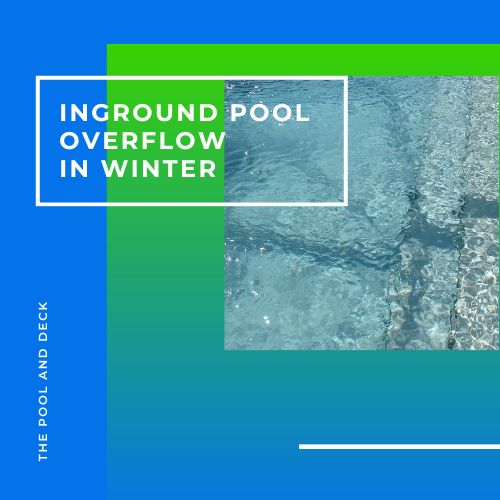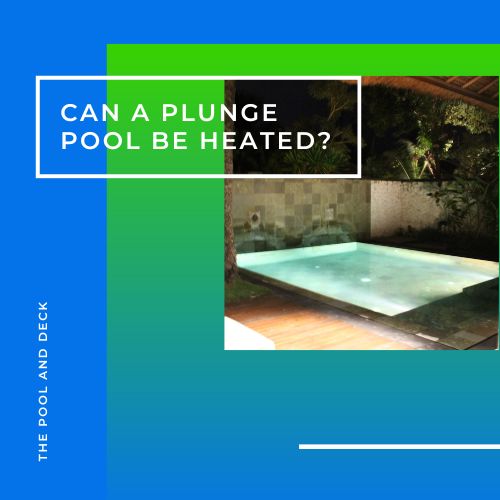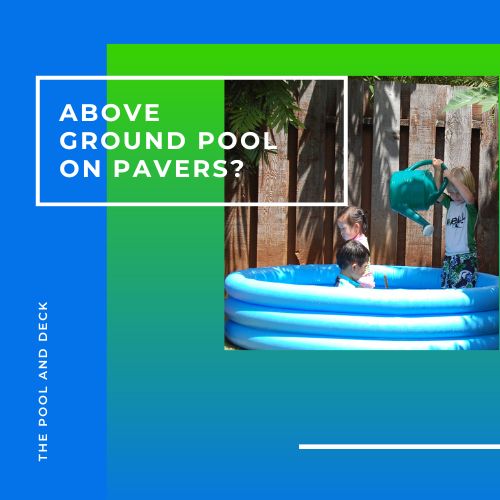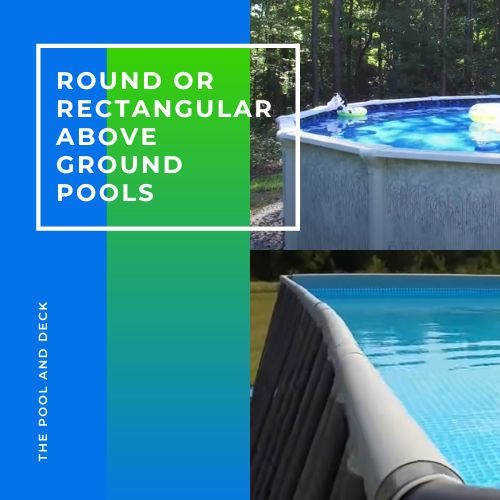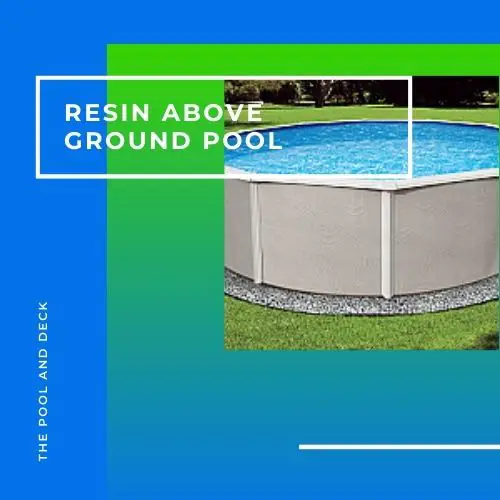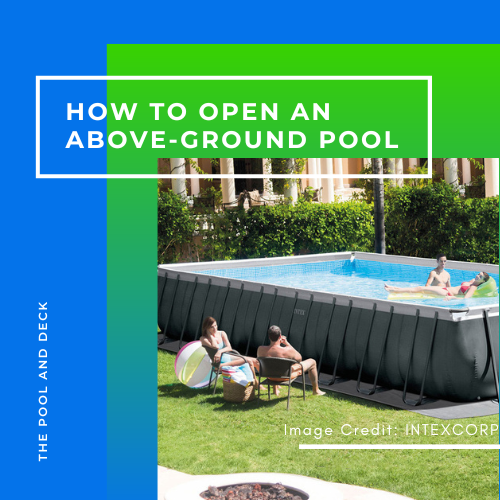10 Super Helpful Ways to Prevent Swimming Pool Freeze Damage!
As an Amazon Associate, I earn from qualifying purchases.
Swimming and splashing around in your backyard inground pool during summer is definitely a lot of fun. Unfortunately, like all good things in life, summer is coming to an end. You need to make sure there is no swimming pool freeze damage this winter. But do inground pools freeze in winter?
The inground pool can freeze in the winter. The severity of the freeze depends on the climatic conditions. But you can minimize the resulting swimming pool freeze damage by some careful planning and action.
You can manage to avoid the worst. You may actually survive the winter with little or no swimming pool freeze damage.
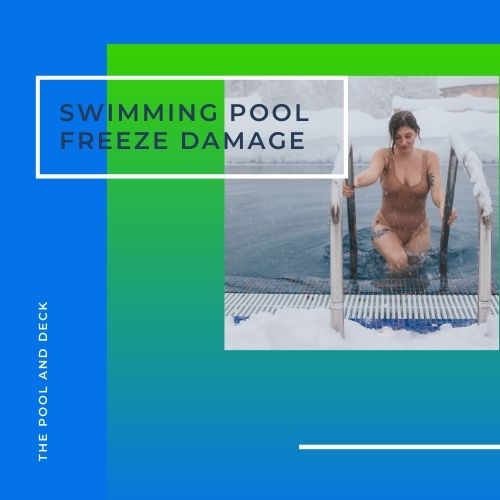
Winter climate can vary quite a bit depending on the location. If you live in one of the northern states of the US or in Canada then the freezing of your inground pool during winter is almost a certainty. Even so-called warmer states such as Texas can get cold spells which can result in inground pools freezing briefly during winter.
In this post I will share with you 10 super helpful ways to prevent swimming pool freeze damage. Feel free to read the entire post or jump to the section of your interest by clicking on the links below. So let’s dive in.
- When Should You Close an Inground Pool?
- Use a Pool Cover
- Use a Pool Heater
- Run the Pool Pump 24/7
- Install a Freeze Protector/Automatic Timer
- Maintain the Pool Water Level
- Protect your Skimmer from Cracking
- Right Setting on Filter Multiport Valve
- Angle the Return Jets Upward
- Use Swimming Pool Antifreeze
1. When Should You Close an Inground Pool?
A very important question that you need to ask as you get into the winter season is whether you should close or not close your inground pool. While there is no clear-cut answer to this question the following guideline may help.
Do you live in a region where there is no real winter? Lucky you, if the temperature remains above 32° F all around the year. Obviously you are not at all concerned about swimming pool freeze damage. There is no need for you to close your inground pool during the cool season.
There are some regions where the temperature mostly remains above the freezing point for most of winter. But you may get a few days of a cold snap when the outside temperature dips to below freezing.
As long as this situation is limited to a few days at a stretch, you do not have to close your inground pool. There is a possibility that your pool may freeze partially but with the right precautions the swimming pool freeze damage will be minimal.
For all the others, really brutal freezing winters are pretty much the norm. Outside temperatures remain below freezing for weeks at a stretch.
If your pool is in such a region then “To close or not to close the pool?” is not the question. “When should you close the pool?” is the question!
Most public pools consider the period Memorial Day to Labor Day (May–September) as the pool season. Residential pool owners can stretch this window by a week or two.
If you are pretty sure that you are not going to be using the pool till spring, then close the pool when the pool temperature starts staying below 60° F, consistently. The pool water is cold enough to send the algae and pathogens into a dormant state.
Closing your pool while the outside temperature is still above 50-55° F is a lot less unpleasant than closing the pool when the outside temperature has dropped to 35-40° F. You will have a lot less dry leaves to fish out of your pool too!
Closing your inground pool well ahead of the big freeze will ensure that there will be no freezing in the pool skimmers, inlet and outlet pipes, pump and filter.
Of course the water in the swimming pool may still freeze. You can take some steps to prevent (or at least reduce the severity of) the freeze.
2. Use a Pool Cover
Pool covers serve a dual purpose. They keep debris, rainwater and snow out of the pool. They also conserve the heat of the pool water by reducing the rate of evaporation.
In fact, you should use a pool cover every time the pool is not being used. During summer months you may want to cover up the pool at night or whenever the pool is not going to be in use.
In winter you should keep the cover on all the time. Pool covers can be used irrespective of whether you have closed the pool or not.
You have a choice of 3 types of pool covers:
Mesh Safety Covers will block larger debris such as dry leaves & twigs from falling into the pool. However, rainwater and snowmelt can permeate through. Mesh covers are not very effective in containing heat but are recommended if you live in an area with a fair amount of rain or snow.
Solid Winter Covers, as the name suggests, will block not only debris but also rainwater and snow. Solid winter covers are quite effective in reducing loss of pool heat due to water evaporation.
The disadvantage is that you have to frequently clean up the debris, rainwater & snow that accumulates on top. If not done the weight will cause the cover to sag in the middle.
Solar Pool Covers are the best when it comes to reducing the loss of heat from the pool. A solar pool cover is a thin plastic sheet with a large number of air pockets, very similar to a bubble wrap.
Air pockets make the solar pool cover a very good thermal insulator. The clear bubbles in the solar pool cover also act as an array of small magnifying glasses. They concentrate the sun’s rays on the pool surface and heat it up.

24′ Round 12 Mil Clear Solar Pool Cover – $164.99
from: Pool Splash, LLC
However, solar pool covers are not strong and can not be used as safety covers. They can tear under the weight of pets & children. Solar pool covers are best suited for regions with lots of sun but little precipitation in winter.
TIP: Lower the pool water level just before a freeze is expected. However, never try to lower the water level once the pool has frozen. You will cause some serious damage.
3. Use a Pool Heater
This suggestion is pretty much a no-brainer. If you can keep the pool water temperature above 32° F, irrespective of what the outside temperature is, then of course your pool will not freeze.
When it comes to pool heaters you have 5 choices as under:
- Gas Fired Pool Heater
- Electric Resistance Pool Heater
- Wood-burning Pool Heater
- Heat Pump
- Solar Powered Pool Heater
The principle of heating the pool water is the same in each case. The only difference is the energy source.
The pump draws the water from the pool and sends it through the pool filter. The filtered water is then passed through the heater.
The heated water comes back to the pool through the return jets to heat the pool. Quite obviously, to use a pool heater, you must have your pool open. The pool heater can only work if the pool water is being circulated.
4. Run the Pool Pump 24/7
It is a well-known fact that flowing water is less likely to freeze than still water. There are examples of this in nature itself. A gurgling brook or a running stream does not freeze while the neighboring puddles & ponds freeze, when the temperature drops below freezing.
The science is quite simple, really. Flowing water distributes the heat across the entire water body. A pool, without circulation, starts to freeze from the top but the lower part may still be liquid water.
The pool surface gets cold and achieves a temperature equal to the outside temperature. The water at lower levels is in contact with the ground, which is warmer than the outside temperature.
A swimming pool, without circulation, develops a temperature gradient with the surface temperature being close to ambient temperature.
If you have chosen not to winterize your inground pool then running the pool pump continuously will ensure pool circulation at all times. Chances are your pool will not freeze, especially if you have a pool heater too!
A variable speed pool pump can be quite useful if you get short but intense cold spells. You can increase the pump speed and ramp up the circulation, when the temperature plummets.
5. Install a Freeze Protector/Automatic Timer
You get it. If you have your pool heater and pool pump working together to keep the pool water warm and in circulation, then there is little chance of your inground pool freezing during winter.
The problem is this is easier said than done. You cannot be expected to be keeping a watch on your pool at all times. You have many more important things to do.
Not a problem. There is technology and a gadget to take the load off your mind. A freeze protector and automatic timer will keep a tab on the pool water level,temperature climatic conditions, etc. and switch on or switch off the pool heater and the pool pump as required.
Check out Intermatic PF1102 Freeze Protection Control.
6. Maintain the Pool Water Level
To be honest it is not an easy job to maintain the pool water at the correct level during winter. For one, the pool is not being used. Moreover, the pool is under a cover so you cannot see the water level that easily.
Nonetheless, maintaining the correct pool water level is extremely important for preventing your inground pool from freezing in winter.
You may have chosen to close your inground pool or keep it open during the entire winter. Whatever your decision, the pool water level still remains a critical factor for preventing swimming pool freeze damage.
Closed Pool
If you have decided to close your inground pool for the winter then you must maintain the pool water level to be around 12 inches below the bottom of the skimmer opening.
The gap between the pool water and the pool cover will prevent, even a sagging cover, from getting stuck to ice on top of a frozen pool.
This pool water level will also ensure that water does not get into the pool circulation system. In any case use return jet plugs and skimmer blocks to ensure that water cannot get in.
Open Pool
In case you have decided to keep your pool open during the winter, then you must ensure that the pool water level is midway between the skimmer opening. This ensures that The pool pump is always pulling in water and not air when it is working.
If the water level drops to below the bottom of the skimmer then the pool pump may burn out. Moreover, the pool water will no longer be in circulation. The possibility of a pool freeze will be high in such a scenario.
7. Protect your Skimmer from Cracking
The pool skimmer is where the pool circulation begins. The skimmer traps the larger floating debris and prevents it from going into the pool pump & filter and clogging them.
Skimmers, being at the forefront, are more likely to freeze than any other part of the circulation system. Skimmers are generally made from thin PVC, and as such can crack quite easily when water freezes in them.
Use a Pool Gizzmo to prevent such a situation.
You can alternatively, use a very simple home made hack which can prevent freezing in the skimmer. Here is how it works.
Take an empty water bottle and fill it 1/3 with a pool antifreeze. Screw the cap back and drop the bottle in the skimmer. This simple device will absorb the expansion of the water in the skimmer.
8. Right Setting on Filter Multiport Valve
The multiport valve (MPV) of a sand or DE filter has 3 ports and 7 settings to perform 7 different functions. The settings control the flow of water from and to the pool.
The filter setting and the recirculate setting are the ones which suck water from the pool and circulate it back. The filter setting passes the water through the filter whereas the recirculate setting bypasses the filter.
You should make sure that the multiport valve setting is either on filter or on recirculate setting.
With the pool cover on, you don’t even need to put the multiport valve setting on filter mode. Putting it on recirculate mode is the right thing to do.
Setting the multiport valve on recirculate, will ensure the best possible water circulation and will reduce the chance of your pool freezing.
9. Angle the Return Jets Upward
Inground pools tend to start freezing from the surface. The reason is that the lower parts of the pool are warmer (enclosed by ground) than the surface (exposed to the cold air).
By keeping the return jets angled upwards you are helping move the warm water from the lower levels to the cold water on the surface.
This will certainly help in reducing the possibilities of surface freezing. Even if the surface does freeze, the thickness of the ice will be a lot less if you use this simple trick.
10. Use Swimming Pool Antifreeze
Swimming Pool Antifreeze is not something you add to the pool water to prevent it from freezing. That is not a feasible idea.
Swimming Pool Antifreeze is used to protect the plumbing and the equipment (pump, filters, etc.) from freezing, once the pool has been closed.
You must winterize the pool’s plumbing including underground lines as well as the equipment first. This product gets added afterwards to the plumbing and equipment.
Thank you very much for reading the post. I do hope you found it informative and helpful.

